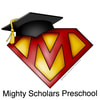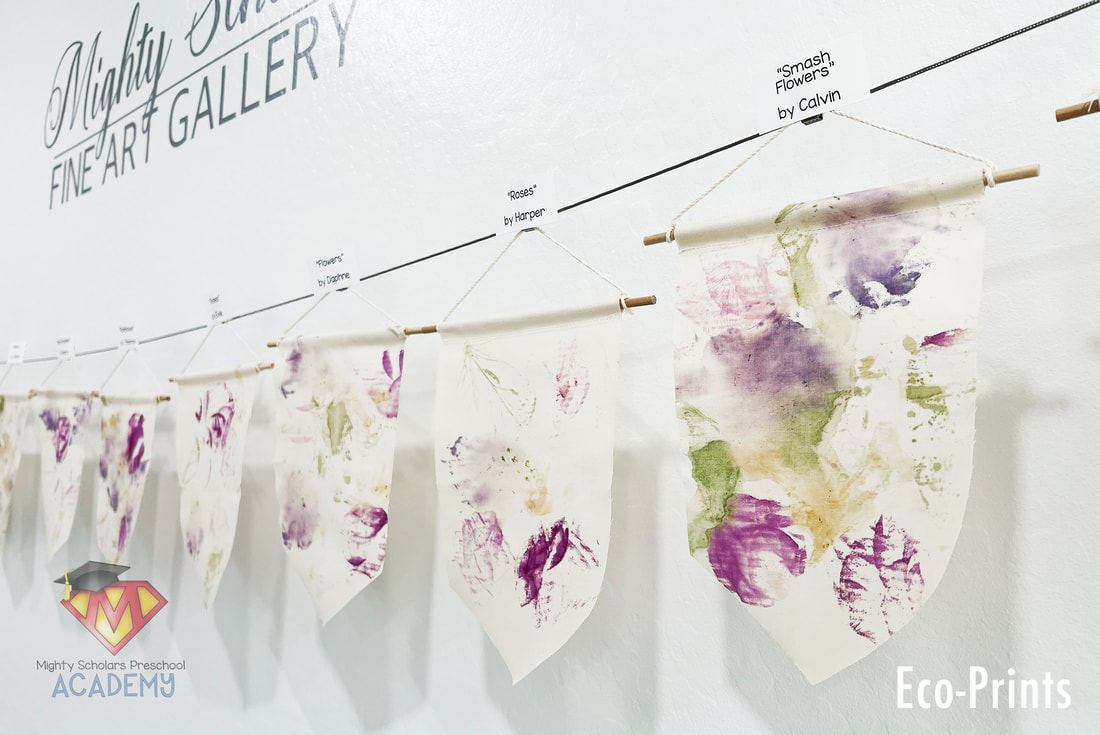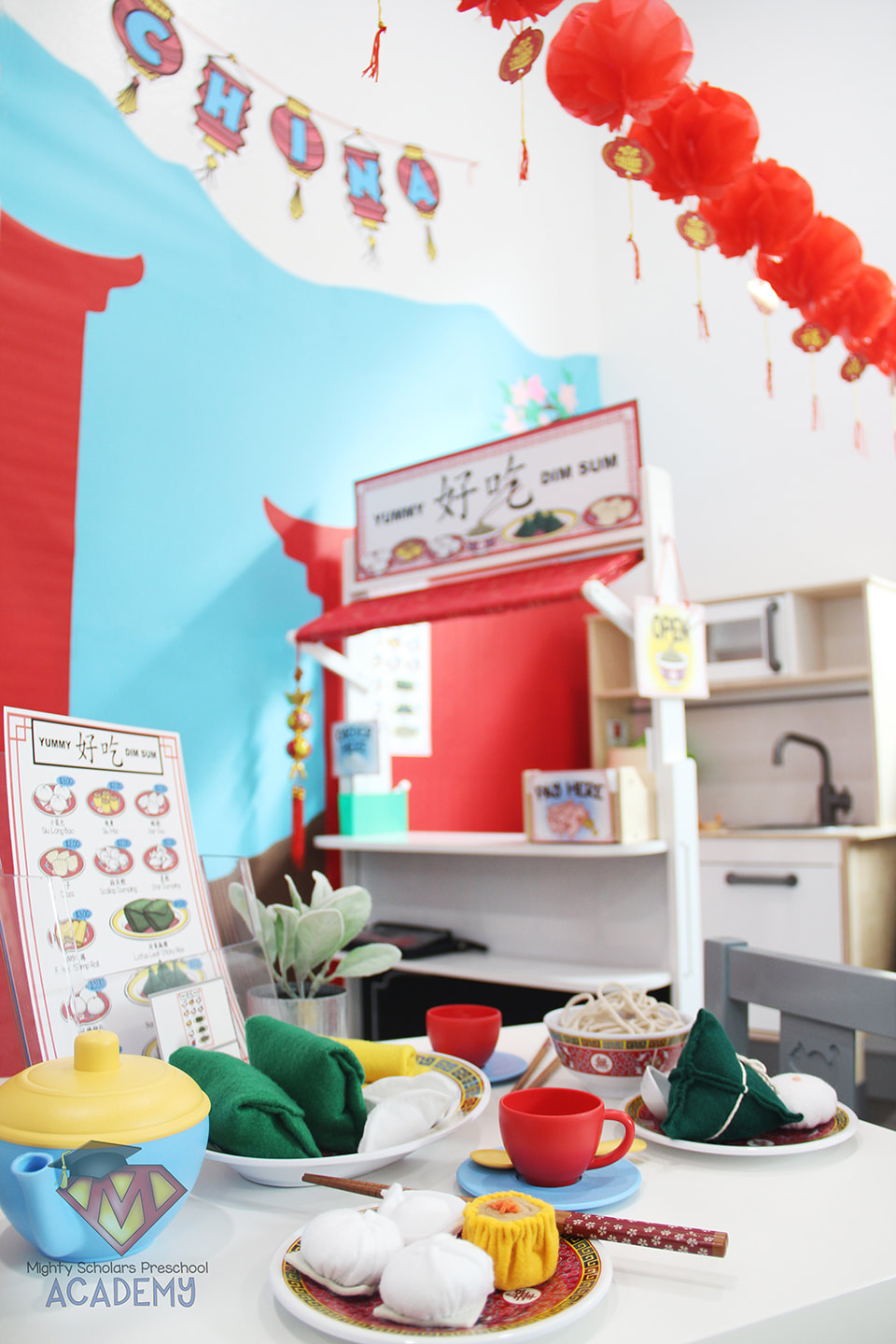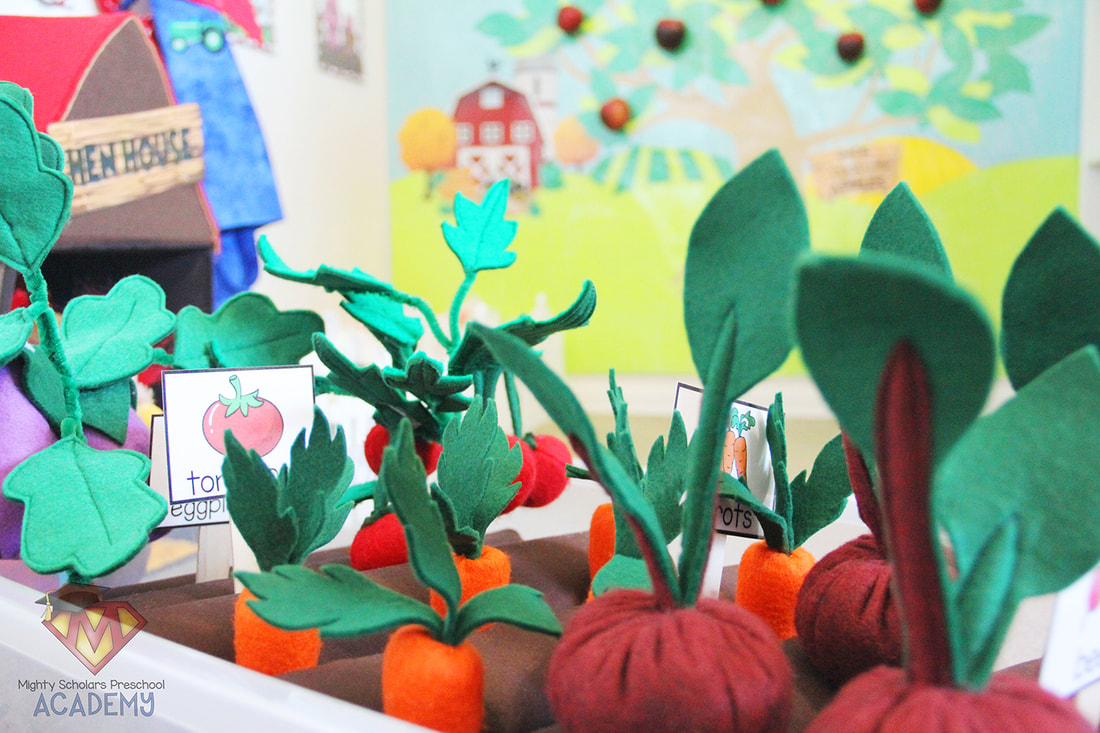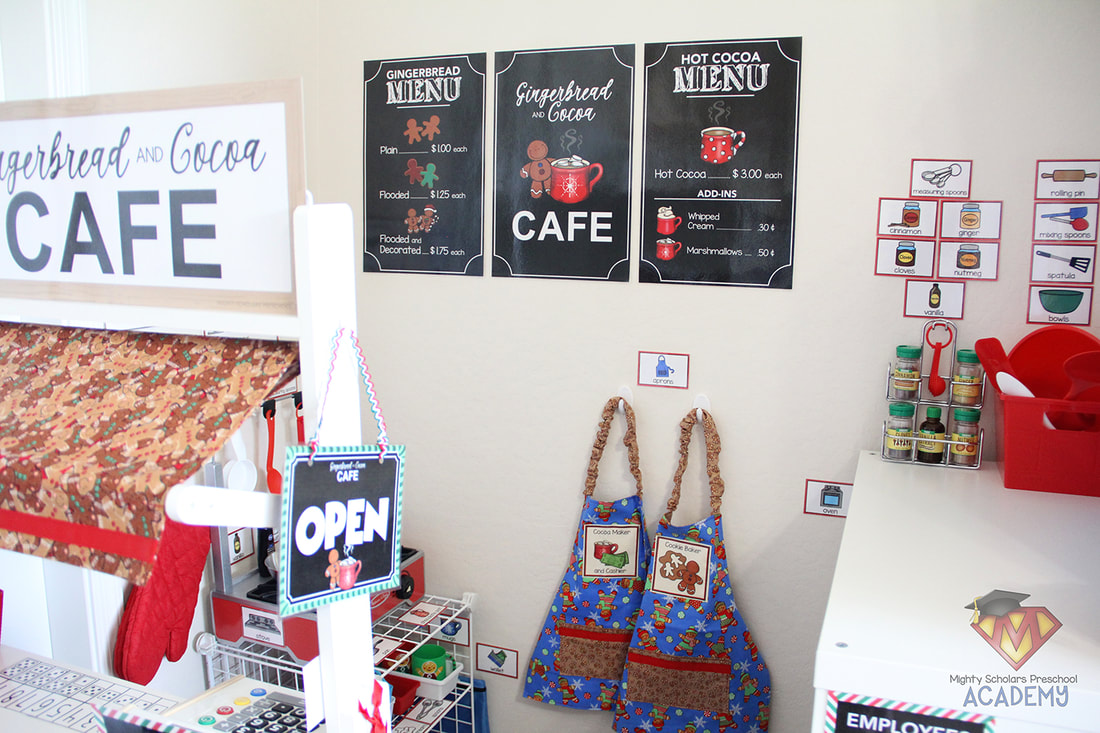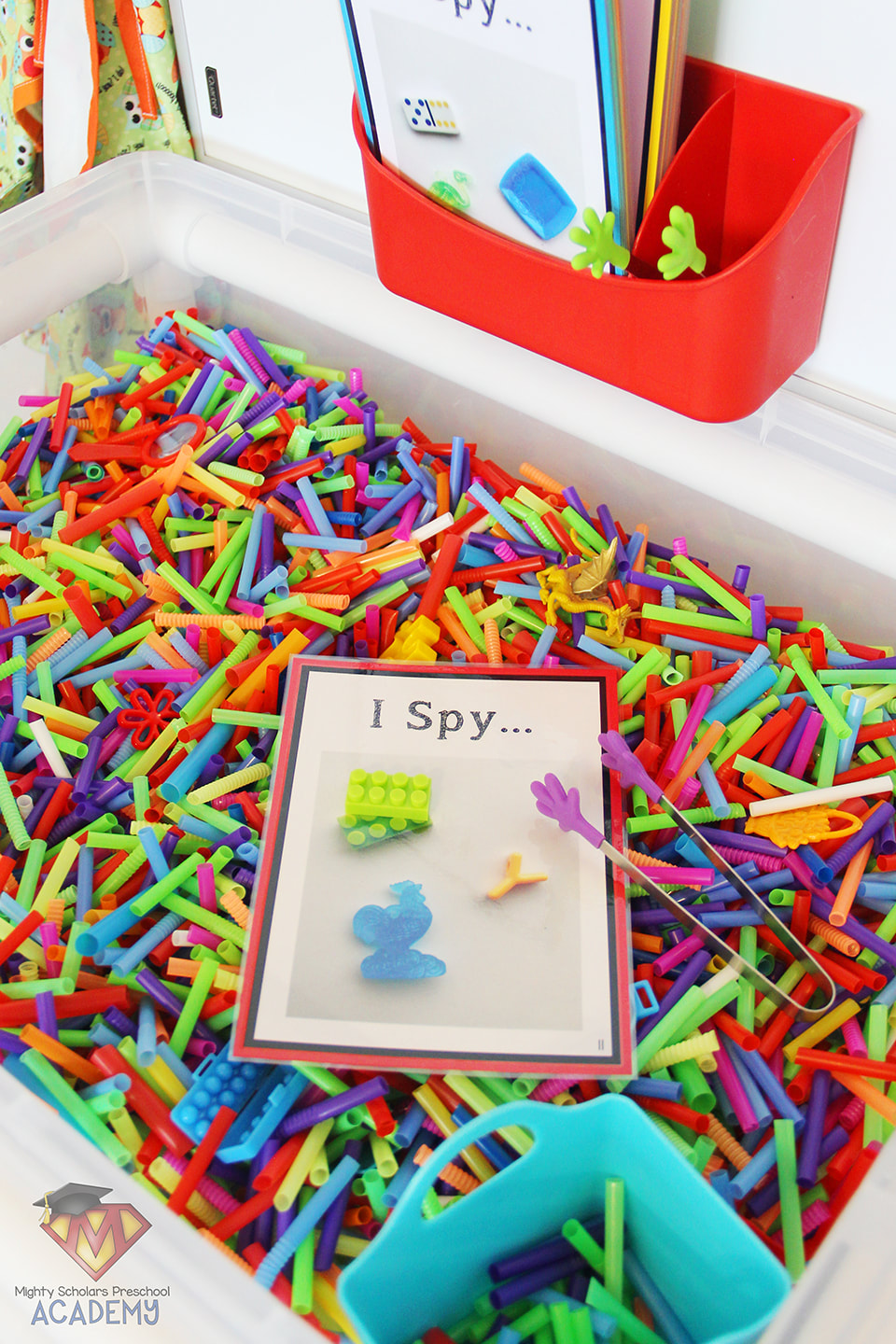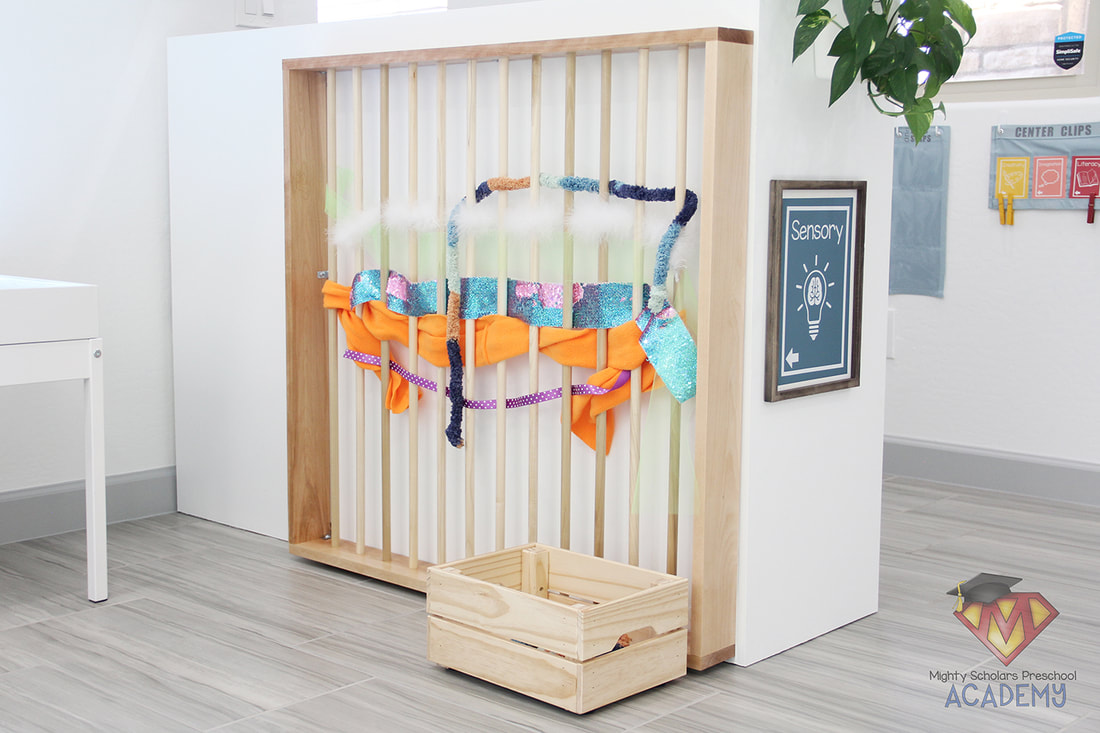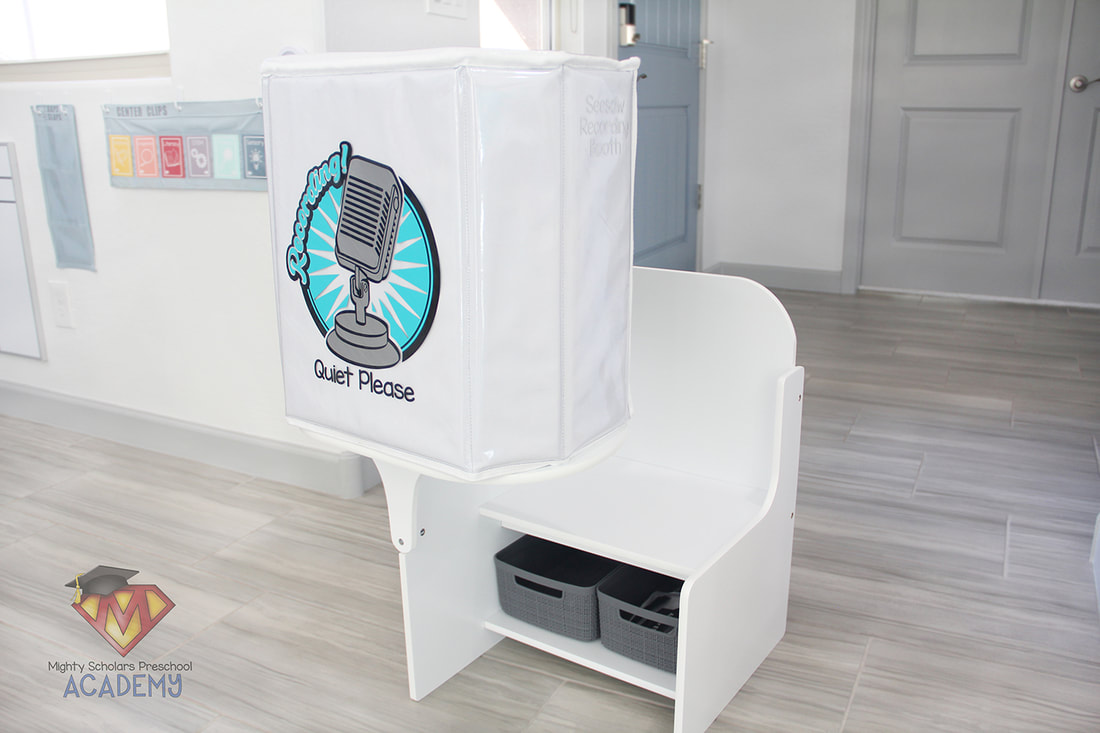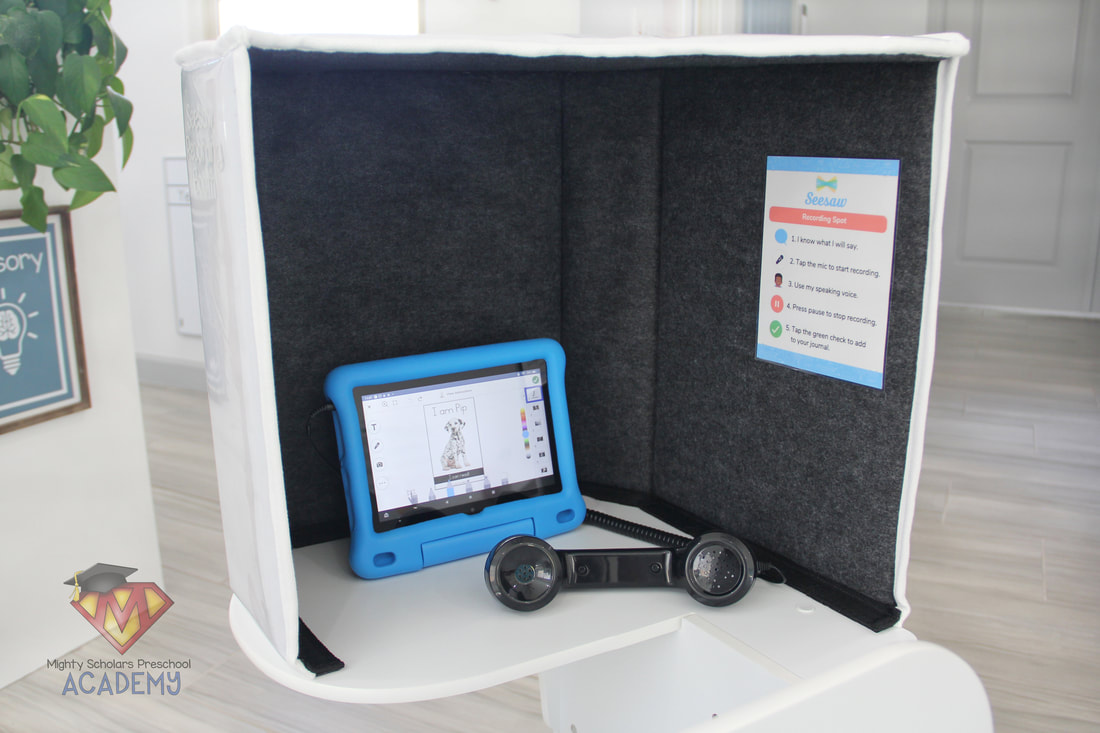Classroom Centers
Morning Meeting, Tutoring and Circle Time Center
The main gathering center for each class is our morning meeting/tutoring/circle time center. It's here at the blue table that small group activities are held and snacks are also given.
Creativity Center
Our creative art center offers open-ended art supplies to foster exploration, experimentation, and unique self-expression. Children are able to engage freely with the materials, without a predetermined outcome. From materials such as: construction paper, scissors, shape punches, colored pencils, crayons, tape and glue (to name only a few), children create one-of-a-kind process art pieces. A vertical easel surface and tempera paint sticks are available for child-led painting projects. Soft, scented, homemade play dough is also consistently provided, giving children the opportunity for sensory play and encouraging essential fine-motor muscle development. Play dough and tools are regularly changed, inspiring continuous creativity. Children's artworks are hung on our classroom art gallery wall, showcasing their masterpieces. When their artworks are hung for all to see, they feel empowered, boosting their confidence and building their self-esteem.
Imagination Center
Why imaginative play? Play is one of the most essential tools in childhood development and results in powerful learning experiences. Role-play develops social interaction skills, self-regulation and conflict resolution skills, along with aiding in language development. It empowers children, when they can choose their own roles, scenarios and outcomes. Children model what they see in the world, recall experiences they have had and stories they have been told, developing memory and preparing them for the future. Imaginative/dramatic play tools aide in math and literacy development, along with helping children learn to organize and plan. Our Imagination Center props are rotated regularly, providing new imagination experiences and offering a wide variety of tools scholars can use to develop essential skills.
Literacy Center
Literacy is the foundation for all learning and is critical for a child's success in school and beyond. This centers emergent literacy is focused through hands-on, regularly rotated books, tools, and activities that promote literacy and fine-motor skill development. Science of Reading aligned decodable readers are also available for children to continue building upon their phonics skills. Included in the literacy center is our listening spot–areas that aide in the development of listening comprehension, oral language, vocabulary and preparation for understanding the written word. Our listening spot offers choice and variety, with regularly rotated books that children can follow along with while listening to the audiobook companion. Audiobooks are played using a locked device that limits access to only the available offline book library. Children's books that are read aloud to the class, are also placed in the library section of the center. Children are able to interact with the read a loud, retelling the story in their own words as they turn the pages.
STEM Center
STEM (science, technology, engineering, mathematics) is more than creating little engineers–STEM develops critical thinking, problem-solving, encourages curiosity and analysis, as well as important math skills that are all crucial for success in life. Center supplies are rotated out regularly, giving variety for inquiry and the foundation for critical developmental play. Children are naturally curious and use the STEM center tools and supplies to build inference , as well as cause and effect. This open-ended approach with materials helps to foster a life-long love of learning, through boosting creative exploratory play and experimentation. Children learn how to cooperate and collaborate when working together with materials in the center, building essential social skills needed throughout their lives. Along with our magnet wall activities, a wide range of materials and textures are provided at all times for children to build, tinker with, and take apart.
Science Center
Why science in preschool? Hands-on discovery experiences encourage exploration, ideas, questions and problem solving. Science is an extension of a child's everyday world. It fosters curiosity and enjoyment about the world around them, while laying a foundation for future science learning throughout their lives. Science builds conceptual understanding, literacy and math skills, as well as concepts. Open exploration of an environment with effective science investigations, without time constraints, has the ability to deeply engage students and provide opportunity for higher order thinking. All of our science investigation activities include real-world materials for hands-on learning. Throughout the school year, children have the opportunity to be involved with the care of our science center hydroponics garden, as they observe the growth of various edible plants from seed to harvest. Our Science Center offers a wide variety of exciting learning opportunities, with lesson materials and activities rotated weekly.
Sensory Center
Children are naturally drawn toward sensory stimulating experiences, incorporating movement and one or more of the five senses: sight, touch, taste, smell, and hearing. Sensory play builds nerve pathways and connections in developing brains. It's open-ended, allowing children to use their creativity and imaginations, without requiring a specific outcome. Skills such as critical thinking, motor (gross and fine), social and language, all benefit and develop from sensory discovery experiences. Sensory play is an important tool in calming a child, building mindfulness, and can help children who have difficulty with verbal expression, or filtering out non-essential information. Our Sensory Center provides multiple sensory experiences: sensory bin, weaving wall, yoga, sensory floor tiles, light table, sensory fidgets, breathing exercises, and shares a calming water fountain with the science center space. The water fountain releases health-generating negative ions, that provide a relaxing and positive atmosphere. Children are also naturally drawn to the soft glow of the light table and can stay for long periods of time, building focus and extending their attention span. The light table can enhance literacy, writing skills, math, science and discovery. Light tables offer a unique visual sensory input experience. The glow of the table can offer a calming experience, as well as allow objects to be seen in an entirely new way. Materials and activities are rotated regularly. Sensory experiences are not limited to the Sensory Center–they are incorporated throughout every classroom center.
Pre-Kindergarten Extensions
Pre-Kindergarten Seesaw Recording Booth
Pre-Kindergarten Club Neurons - Coding/Chess
©2012–2023 Mighty Scholars Preschool Academy
